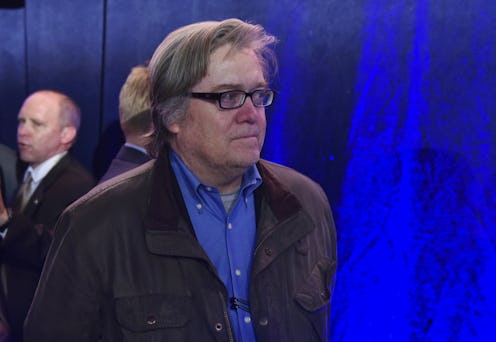News
For The First Time, I'm Scared About Anti-Semitism
Every year at Passover, there's a song that Jews sing around the Seder table. The words translate to: "Every generation, they rise up to destroy us, but the Holy One, Blessed Be He, saves us from their hand." Living in Jew-friendly Highland Park, New Jersey (estimated at around 30 percent Jewish, according to a 2000 New York Times article), attending a Jewish school where all my classmates were like me, I always thought this line was silly. It felt hard to imagine a time or place in our history when we were safer — in late 20th-century America, Jews not only survived, we thrived.
I was not oblivious to antisemitism in America. My school made sure of that. We learned about how the Klu Klux Klan and other white-supremacy groups had preyed on Jews, and how there was actually a significant pro-Hitler faction in the United States before World War II. We talked an awful lot about the continued existence of American neo-Nazis.
Of course, there have always been antisemites in America. But I always assumed that they represented the fringe, while we were the mainstream. At the time of writing, Congress has 10 Jewish senators and 19 Representatives, not to mention the American Jewish role models I grew up seeing in academia, business, culture, and the nonprofit sphere. If that small fringe of antisemites ever got bigger, I hoped that the Jews who represent the best of America would be able to help.
So there's something chilling about a tweet like this, from Shmuley Boteach, a high-profile Orthodox rabbi and former Congressional candidate:
I can't say for certain what Trump advisor Steve Bannon feels about Jews. His ex-wife, Mary Louise Piccard, alleged in a deposition during their divorce that he "didn't want the girls [their daughters] going to school with Jews," as The New York Daily News reported. Bannon's spokesperson denied that he had ever made the remark.
However, I know that the website he was head of, Breitbart, has published articles that I believe bolster antisemitism, and that Bannon has embraced his site's love from the "alt-right," including among white nationalists and antisemites. Bannon told Mother Jones that Breitbart had become the "platform of the alt-right," going on to say, "Are there some people that are anti-Semitic that are attracted? Maybe. Right? Maybe some people are attracted to the alt-right that are homophobes, right? But that's just like, there are certain elements of the progressive left and the hard left that attract certain elements." When pressed with charges that Breitbart published antisemitic content under his watch, he responded that Breitbart is "the most pro-Israel site in the United States of America."
And that's why Boteach's tweet bugs me so much. Boteach doesn't say that he met Bannon and felt that allegations of antisemitism were overblown, that he was put at ease by meeting the man in person. He just says that Bannon supports Israel. He makes no mention of how Bannon feels about Jews in America. Only Israel seems to matter to him, just as it did when Boteach defended Bannon in The Hill against the critique he faced from the Anti-Defamation League's president, Jonathan Greenblatt, who said in a statement, “It is a sad day when a man who presided over the premier website of the ‘alt-right’ – a loose-knit group of white nationalists and unabashed anti-Semites and racists – is slated to be a senior staff member in the ‘people’s house.’”
It scares me when I see someone like Boteach champion Bannon. One of the most pervasive arguments from pro-Israel Jews is that in the case of antisemitism resurfacing in places like America, Israel would be a home. By ignoring issues of American antisemitism and only focusing on Israel advocacy, Boteach makes that future feel suddenly real.
